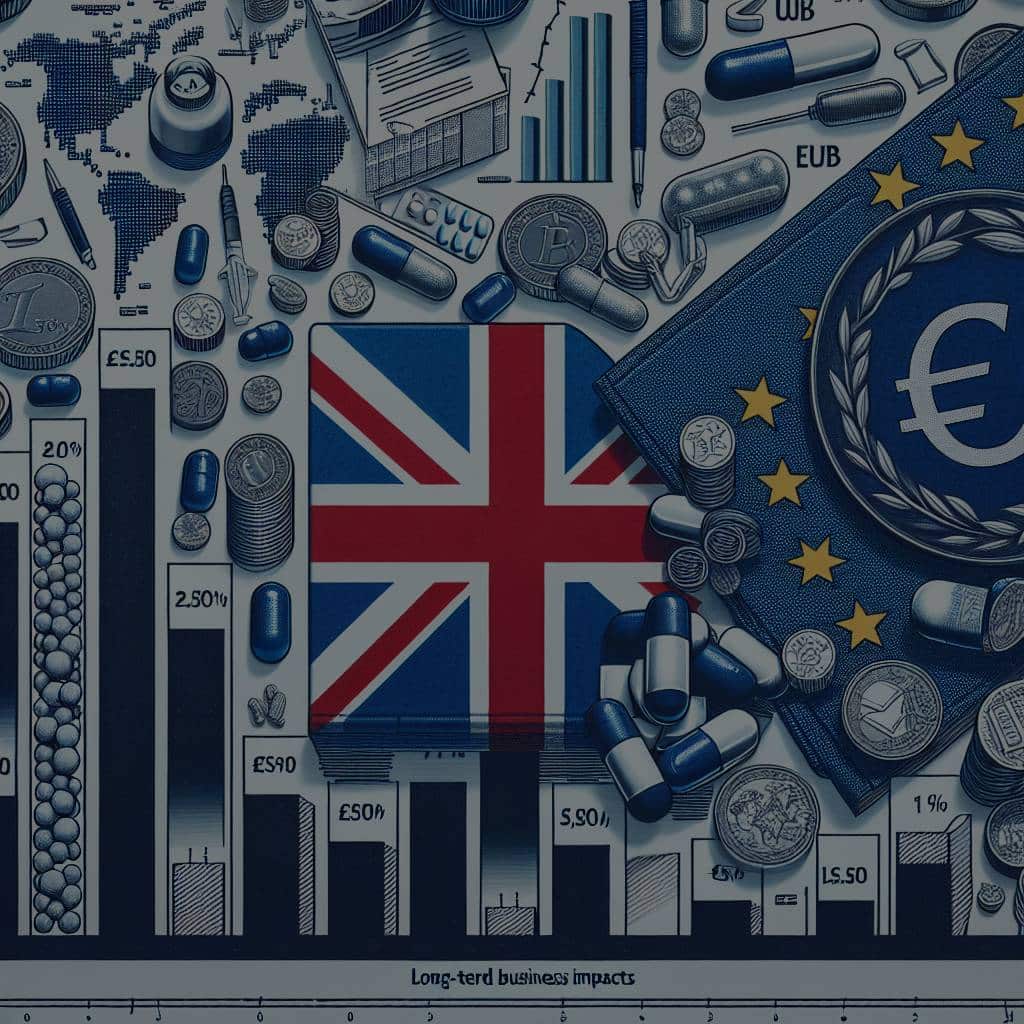What Are the Long-Term Business Impacts of Brexit on UK Pharmaceutical Companies?

In the contemporary business landscape, Brexit has emerged as a seismic event whose shockwaves have reverberated across diverse sectors, not least of which is the pharmaceutical industry. This article delves into the intricate dynamics of Brexit and its long-term implications on UK pharmaceutical firms. It provides an in-depth exploration of how Brexit impacts the supply chain, the process of authorisation, the European Medicines Agency (EMA), health regulation, international trade, and data management in this crucial sector.
The Impact on Supply Chain and Market Access
Brexit has certainly left an indelible mark on the pharmaceutical supply chain, given the sector’s inherent interdependence on cross-border transactions and international cooperation. UK pharmaceutical companies have long enjoyed the unlimited flow of products, ingredients, and medicines across the European market, a privilege fundamentally threatened by Brexit.
In the same genre : Cross-border trade in Calais: customs compliance under control
Supply chain disruptions have become a new reality for many UK pharmaceutical companies. Some businesses have had to reroute their supply lines, a move that comes with additional costs and complexity. This shift could potentially increase the prices of medicines, impacting the affordability and accessibility of essential health products for consumers.
Furthermore, post-Brexit, the UK pharmaceutical industry faces the daunting task of renegotiating trade agreements with EU member states. This challenge is magnified by the fact that it’s not just about securing market access, but also about ensuring that UK pharmaceutical products meet the regulatory standards of European markets.
In parallel : How UK Tech Firms Can Establish Effective Remote R&D Collaborations?
Regulatory Changes and the Role of EMA
The EMA, which was formerly headquartered in London, relocated to Amsterdam following Brexit. This move significantly affects the UK’s influence in setting pharmaceutical standards and authorising new medicines. UK pharmaceutical companies now face a dual regulatory system: one for the UK and another for the EU.
The separation from the EMA means that UK pharmaceutical firms might need to undergo a separate process of authorisation for the UK market and the European market. This change generates additional costs and administrative burdens for these companies, potentially slowing down the launch of new medicines in both markets.
Moreover, the UK has to develop its own regulatory body to replace the EMA, leading to uncertainties about whether it can match the EMA’s efficiency and expertise in securing public health.
International Trade and Crossref Barriers
In the post-Brexit era, the freedom of UK pharmaceutical companies to trade across European borders is heavily circumscribed. The transition has resulted in new trade barriers, tariffs, and intricate crossref requirements.
Moreover, while Brexit advocates champion the potential for the UK to forge new trade alliances outside Europe, pharmaceutical companies have to grapple with the uncertainty of these future relationships. Until new agreements are finalised, these businesses are floating in a sea of uncertainty, which could discourage investment and innovation.
Data Management and Google
In an era where Google and data management have become pivotal in business operations, the divide created by Brexit presents new challenges. Data protection and privacy laws vary between the UK and the EU, causing potential legal and operational complications for UK pharmaceutical companies. These firms must now ensure they are compliant with both UK and EU data regulations, adding another layer of complexity to their operations.
Additionally, the pharmaceutical industry relies heavily on scientific research collaborations and data sharing. Post-Brexit, the question is whether UK pharmaceutical companies can maintain the same level of fruitful collaborations with their EU counterparts.
Brexit has indeed brought about significant shifts in the UK pharmaceutical landscape. From supply chain disruptions to regulatory changes, trade barriers, and data management concerns, UK pharmaceutical companies find themselves navigating a new terrain filled with challenges and uncertainties. How these businesses adapt to this new reality will significantly determine their success and resilience in the years to come.
Clinical Trials and Research Collaboration
Post-Brexit, UK pharmaceutical companies have to face the entirely new challenge of conducting clinical trials and research collaboration with their European counterparts. Previously, these companies were able to easily collaborate with EU-based institutions and organisations as they were part of the same legislative and regulatory framework. This reality has changed drastically due to Brexit.
In this new landscape, the UK pharmaceutical industry will have to renegotiate agreements related to clinical trials and research collaboration with EU member states individually, which is a time-consuming and resource-intensive process. The lack of access to the vast pool of European patients for clinical trials might also limit the scope and scale of these studies in the UK.
Moreover, there is a palpable risk of a ‘brain drain’ as UK pharmaceutical companies might not be able to attract or retain top talents who prefer to work within the larger and more integrated EU framework. This could potentially affect the quality and competitiveness of the UK pharmaceutical industry on a global scale.
Health Technology Assessment and Health Care
The Brexit divide also has significant implications for Health Technology Assessment (HTA) and health care. HTA is crucial in determining the clinical and cost-effectiveness of medicinal products, thereby influencing their market access and uptake. In the EU, the European Medicines Agency (EMA) works closely with HTA bodies in member states to synchronise their assessments.
Post-Brexit, the UK will have to conduct its own HTA, independent of the EMA. This could potentially lead to divergences in drug appraisals between the UK and EU, affecting the availability and affordability of new medicines for the UK population.
Moreover, the disruption in the supply chain post-Brexit might have a knock-on effect on the UK’s health care system. If the cost of pharmaceutical products increases due to supply chain issues, it could lead to higher health care costs for UK citizens, potentially straining the public health care system.
Conclusion
Brexit has initiated a new era for the UK pharmaceutical industry, marked by significant challenges and uncertainties. From supply chain disruptions to regulatory changes, renegotiation of trade agreements, issues related to data management, clinical trials, and health care, the long-term impacts of Brexit on UK pharmaceutical companies are profound and far-reaching.
However, these challenges also present opportunities for these companies to reinvent themselves, forge new alliances, and adapt to a rapidly changing global landscape. How well they navigate this new terrain will define their success and resilience in the post-Brexit era.
While the path ahead is complex, the pharmaceutical sector’s inherent dynamism and its critical role in safeguarding public health mean that it will continue to be a vital component of the UK’s economy and health care system.
